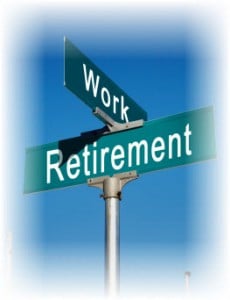The first item we need to approach is establishing who/what the generations represented in the work place and their characteristics.
According to Sally Kane on About.com:
- Millennials – very tech-savvy, family centric, want meaningful work and a solid learning curve, they are loyal, appreciate being included, and seek frequent praise and reassurance.

- Generation Xers – the “latch-key” generation; subsequently are characterized by their fierce independence, resourcefulness, and self-sufficient work ethic. They dislike being micro-managed and embrace a hands off management philosophy. Xers are the first generation to grow up with computers; where technology is woven into their lives. They also are known for being ambitious and eager to learn new skills but want to accomplish things on their own terms.

- Baby Boomers – grew up in an era of reform and believe they can change the world. They are characteristically confident, independent, and self-reliant. Boomers believe in hierarchical structure and rankism; they may have a hard time adjusting to workplace flexibility trends. They believe in “face time” at the office and may fault younger generations for working remotely.

- Traditionalists (The Silent Generation) – this generation believes you earn your own way through hard work. Traditionalists are willing put in long, grueling hours to get ahead in their careers. Traditionalists were taught to respect authority. They favor conventional business models and a top-down chain of command.

The Millennials are getting a lot of negative attention regarding their place in the job market. They are regarded as having delusions of grandeur, a tendency for being increasingly narcissistic and confident in abilities they do not yet possess. It has been said, they are part of a generation that thinks they are special and therefore unable to be happy with the career opportunities they can attain. Is this a fair assessment of their work ethic or is it this is the assessment of ALL young professionals before they have the chance to prove otherwise?
This topic was discussed at Kenco’s Customer Summit held in September of 2013. Boomers and Gen Xers had thoughts and solutions on how to handle a new generation. Everything from Leadership Development Programs (LDP) that lasted up to 2 years to long term broad stroke programs that allowed new employees 5-10 years of skill cultivation. As formidable as the LDP programs have been for companies, management feels the younger generation is not using the programs to their full potential.
Unfortunately, each previous generation doesn't see the place they started; only the current situation they hold.
I believe we are not at a stalemate. Two things need to happen.
The first solution is for the Millennials to adapt their learning style to the already established working environment. Grant Cardone, New York Times best-selling author and radio talk show host of the Cardone Zone explains the Millennials can make their mark in 5 steps:
- Shrug off the bad rap – prove everyone wrong and set goals with a clear list of action items for your future.
- Opportunity is everywhere – find the people at the top; call them, tweet them, and email them.
- Gain access and learn – taking less money initially to gain information/access will pay off in the end.
- Set the bar higher than the middle class myth dictates – don’t strive for middle. Strive for greatness.
- Surround yourself with big thinkers and big earners – when a runner wants to get better he/she runs with someone better than them. If you want to be more successful, then be in the successful people circle.
The second solution is for the Gen Xers and Boomers to realize there are other styles of management than the one that worked for them and to incorporate different teaching styles.
- Communication: According to a recent Dale Carnegie Training engagement study, “One of the best ways to build a strong relationship with young employees, and help them establish their own leadership skills, is through effective communication.”
- Delegate responsibility: Giving a junior employee more responsibility empowers them to feel like a larger part of the company. The more confidence an employee has regarding their standing within an organization, the more they will be able to feel comfortable taking on a leadership role. At the same time it is important to realize when someone is overwhelmed and needs additional guidance.
- Self-Awareness: Another finding from the Dale Carnegie Training study was employees who believe in senior management have higher overall levels of engagement. Leading by example is one of the best forms of training a senior level employee can utilize.
- Maintain a positive work environment: Finally, establishing a positive culture in the workplace will give junior employees a clear understanding of what is an appealing work ethic and what is not.
Realizing the status quo works for some, but not most of the employment population, is the beginning of the solution. Creating a talent management process that draws on the strong suits of each generation while recognizing the barriers within the generation gaps will cultivate a formidable education platform. By implementing these action items we can leverage the strengths of each generation.






